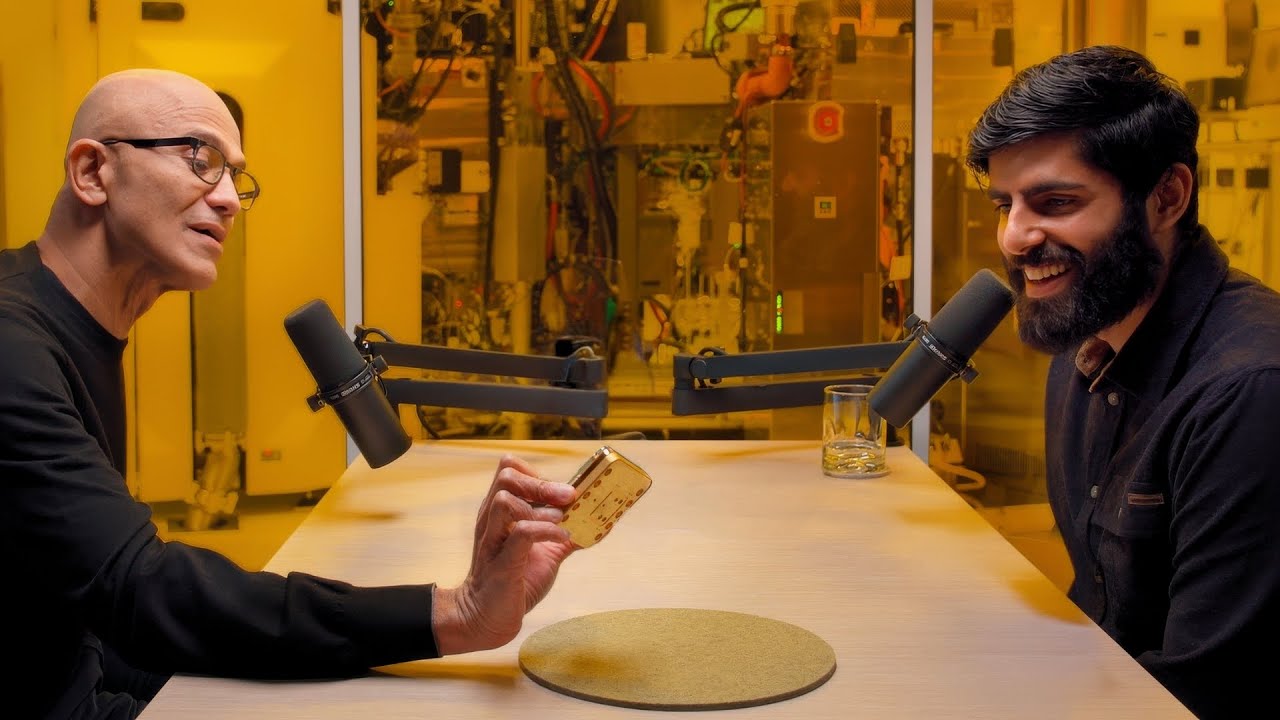In a recent podcast, Microsoft CEO Satya Nadella discussed the company’s advancements in artificial general intelligence (AGI) and quantum computing, highlighting breakthroughs like the Majorana zero chip and the importance of identifying enduring technological trends. He emphasized the need for AI to drive productivity and economic growth while also announcing the development of a new AI model for gaming, underscoring the necessity for companies to adapt and innovate in a rapidly evolving tech landscape.
In a recent podcast, Satya Nadella, CEO of Microsoft, discussed the company’s advancements in artificial general intelligence (AGI) and quantum computing, highlighting two significant breakthroughs: the Majorana zero chip and world human action models. He reflected on the cyclical nature of technological debates, drawing parallels between the current landscape and the discussions of the 80s and 90s regarding computing architectures and the rise of the internet. Nadella emphasized the importance of understanding which technological trends will endure and which are ephemeral, noting that the ability to identify long-term winners is crucial for success in the tech industry.
Nadella outlined four major transformations he has witnessed throughout his career, including the evolution of client-server computing, the rise of the web, and the shift to cloud computing. He stressed the need to recognize where value will be created in the AI landscape, suggesting that hyperscalers capable of handling vast amounts of compute will emerge as significant players. He also pointed out that the market for AI models is unlikely to be winner-take-all, as enterprises prefer multiple suppliers, which will foster a diverse ecosystem of both closed-source and open-source models.
The conversation shifted to the implications of AI on business models and the potential for exponential growth in AI-related revenue. Nadella expressed caution about the hype surrounding AGI, emphasizing that real economic growth must be accompanied by productivity increases across industries. He highlighted the importance of aligning technological advancements with societal needs, suggesting that the true measure of success will be the ability to drive GDP growth and create value for customers.
On the topic of quantum computing, Nadella announced a significant breakthrough with the Majorana zero chip, which could lead to the development of utility-scale quantum computers. He explained that this advancement represents a foundational shift in quantum computing, allowing for the reliable fabrication of qubits. Nadella expressed optimism about the timeline for scaling up to a million qubits, projecting that by 2027-2029, Microsoft could have a functional quantum computer capable of significant computational tasks.
Finally, Nadella discussed the integration of AI into gaming through the development of a new model called Muse, which aims to generate diverse and consistent gameplay experiences. He emphasized the potential of AI to transform knowledge work and the importance of creating a new workflow that leverages AI capabilities. Nadella concluded by reflecting on the need for companies to remain relevant and adaptable in a rapidly changing technological landscape, underscoring the importance of fostering a culture of innovation and continuous improvement within Microsoft.
